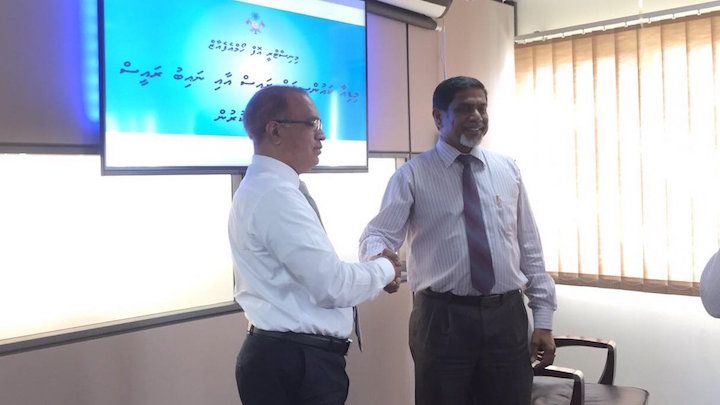Media council elects new leadership amid press freedom concerns
Concerns have been raised about the independence and the lack of professional experience of the new members elected to the print and online media regulator at a time when press freedom is under threat.

20 Dec 2016, 09:00
The reconstituted Maldives Media Council elected leaders and began its new term on Monday amid heightened concern over press freedom in the country.
Abdul Mueed Hassan from the online blog Bahuru and Ahmed Abeer Ismail were elected president and vice president, respectively. New members elected to the print and online media regulator on December 12 met for the vote yesterday at the home ministry.
Mueed was the sole contender for president whilst Abeer narrowly defeated Ahmed Mujthaba from Sun Online.
Become a member
Get full access to our archive and personalise your experience.
Already a member?
Discussion
No comments yet. Be the first to share your thoughts!
No comments yet. Be the first to join the conversation!
Join the Conversation
Sign in to share your thoughts under an alias and take part in the discussion. Independent journalism thrives on open, respectful debate — your voice matters.




